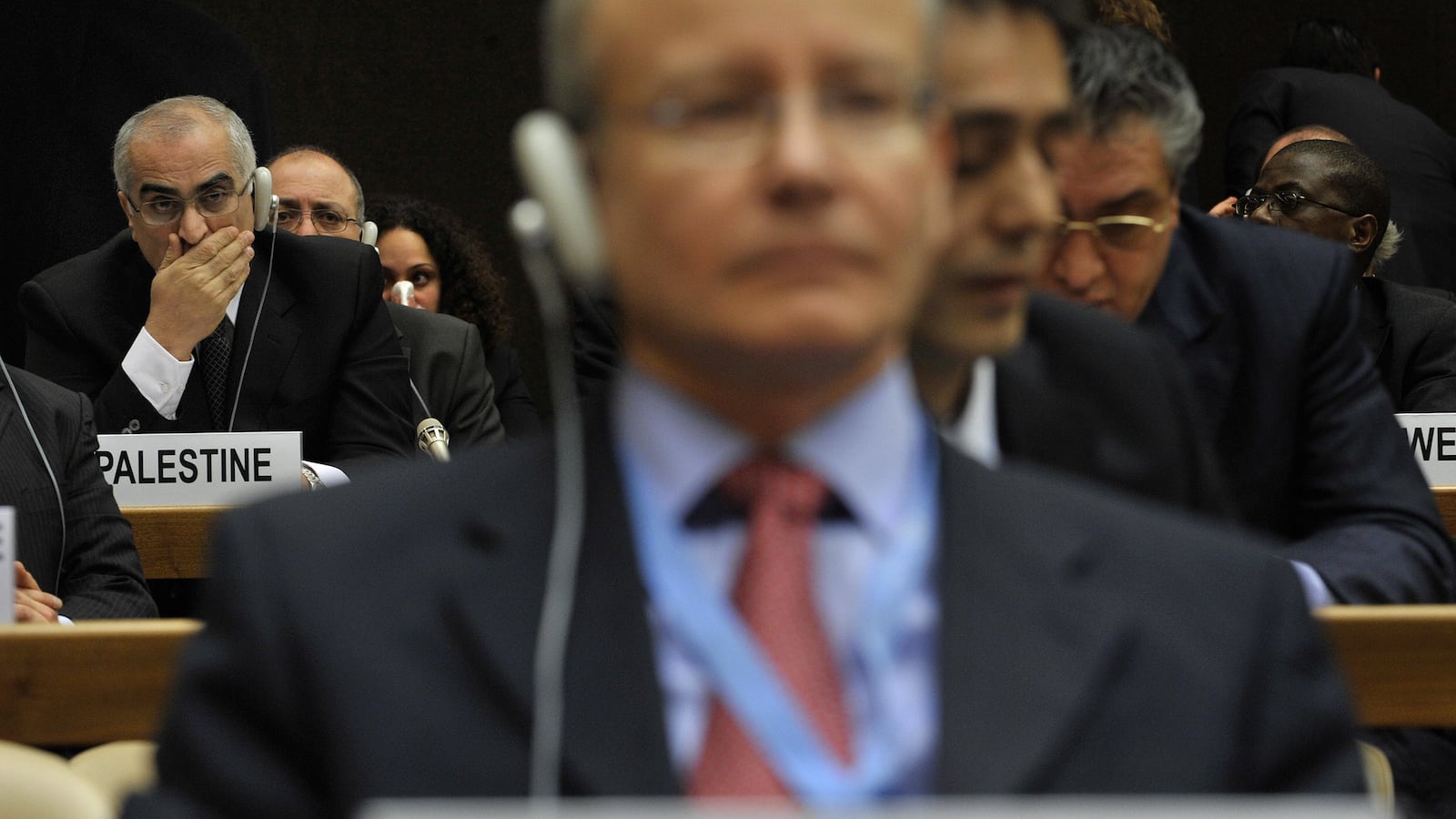The United Nations Human Rights Council’s predictably one-sided anti-settlement slam offered an opportunity for thoughtful pro-Israel Progressives to counter with nuance. Indeed, that is what the Labor MP Nachman Shai did in Haaretz, condemning the harsh, distorted report while criticizing the "the foreign policy of the current government" and having run on a platform endorsing a two-state solution, which acknowledges that would entail evacuating some settlements. Alas, in a move that risks having readers mistake Open Zion for an Open-Season-on-Israel website, Emily Hauser celebrated the nefarious report itself, blind to its biases. In fact, to Hauser, this myopia was mere fodder for some dismissive line that “yes: The U.N. has made rather a habit of looking at Israel’s human rights abuses very closely,” pooh-poohing the harm done.

A report highlighting the real problems, such as anti-Palestinian violence, illegal land seizures, and unfair bureaucratic obstacles to Palestinian building would have been much more effective. Instead, these abuses get ignored amid a relentless pounding against Israel that undermines the report’s credibility, inflames tempers all around, and hinders peace.
Consider just two examples of the distortions permeating the report like cancer, reflecting the U.N.’s traditionally toxic approach to the conflict. The report perpetuates the longstanding U.N. assumption—and increasingly popular international position—that Israel has no legal standing in any of the territories while Palestinian rights are unassailable. If the positions were that mutually exclusive, the conflict would not be that complex. There are, instead, conflicting historical, legal, demographic, and moral claims, over a territory in which populations moved and borders repeatedly shifted—at least six times in the twentieth century.
Focusing on just one aspect of the legal case which the report treats as if it were open and shut, in 1980, when the Security Council applied the Fourth Geneva Convention on the Protection of Civilian Persons in Time of War “to the Arab territories occupied by Israel since 1967, including Jerusalem,” Senator Daniel Patrick Moynihan, a Harvard academic with a Ph.D. in International Relations and a strong memory, objected. This was “one of a series of treaties designed to outlaw specific Nazi behaviors,” he explained. “This particular convention applied to the Nazi practice of deporting or murdering vast numbers of persons in Western Poland—as at Auschwitz—and plans for settling the territory with Germans.” Comparing the situation in the West Bank, when the British Mandate legalized Jewish settlement in all of Palestine, the Jews had historic ties to the land, the post-1949 Jordanian control was legally cloudy, and Israel won the territories in a defensive war, was, Moynihan wrote, “an Orwellian inversion of meaning.” The Soviets’ perverse propagandists simply enjoyed comparing the Jewish state with the Jews’ Nazi tormentors.
Note: one can make a valid, reasonable, demographic critique of settlements and a passionate, moral argument for Palestinian statehood, without resorting to this distorted reading of history, the map, and the law.
The second of many other possible objections comes from the report’s refusal to acknowledge any Israeli moves as constructive, epitomized by the biased description of the 2005 disengagement plan. To the UN “fact finders,” Israel’s painful, complicated, withdrawal from Gaza and parts of Samaria was a mere posture “to preserve its control on the settlements in the West Bank.” The report quotes Prime Minister Ariel Sharon saying that after disengagement Israel “would strengthen its control” of the other parts. A fairer, more complex analysis would also have quoted from Sharon’s original speech presenting his plan and declaring, “The Disengagement Plan is meant to grant maximum security and minimize friction between Israelis and Palestinians”—but why confuse a caricature with complicated and counter-balancing facts?
These are but two examples of the main problem Emily Hauser and others overlook. Demonizing Israel, oversimplifying the territorial dispute, validating every maximalist Palestinian demand, threatens the peace process and dims hopes for a two-state solution. Treating Israel like an international outlaw and Palestinians like blameless victims makes it harder for either side to negotiate—insults rarely encourage countries to compromise nor does one want to negotiate with demons.
Yet again, I am astounded by the one-sided, short-sighted approach so many take to this conflict. I accuse too many progressives of being quick to blame Israel yet slow to blame the Palestinians, the U.N., or themselves, for inflaming the conflict with simplistic slogans and demonizing accusations that encourage extremism on both sides. Acknowledging the messiness—and respecting some of both sides’ claims—lowers the rhetorical temperature, fosters humility, invites creativity, and encourages peace-making. It is why I want a balanced panel at Brooklyn College and other universities, especially when academic departments sponsor forums. It is why I demand a nuanced report from an institution supposedly devoted to peace and human rights. And it is why I prefer a subtle analysis highlighting Middle East complexities from colleagues here on Open Zion.





